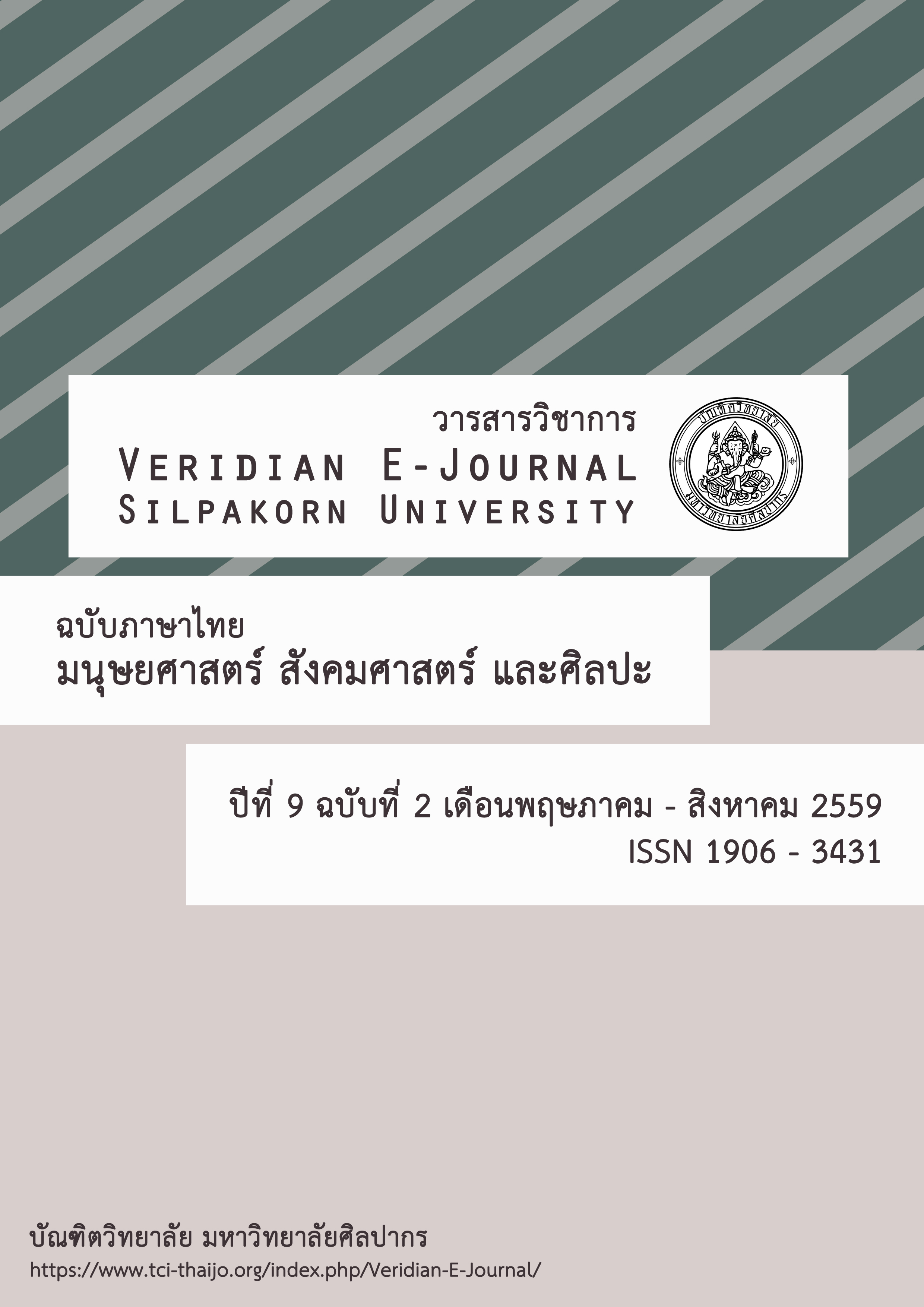ประสิทธิผลของโปรแกรมการฝึกอบรมเพื่อพัฒนาอาชีพตามแนวคิด Two – Generation Approach
Main Article Content
Abstract
การวิจัยครั้งนี้มีจุดมุ่งหมาย 1) เพื่อสร้างโปรแกรมการฝึกอบรมเพื่อพัฒนาอาชีพ ตามแนวคิด Two – Generation Approach 2) เพื่อศึกษาประสิทธิผลของโปรแกรมการฝึกอบรมเพื่อพัฒนาอาชีพ ตามแนวคิด Two – Generation Approach กลุ่มตัวอย่าง ที่ใช้สำหรับการวิจัย ประกอบด้วย 1) ผู้ให้ข้อมูลสำคัญโดยการสัมภาษณ์ จำนวน 30 คน 2) ผู้ให้ข้อมูลสำคัญในการสนทนากลุ่ม จำนวน 15 คน และ 3) กลุ่มตัวอย่างที่ใช้ในการทดลองโปรแกรมการฝึกอบรมเพื่อพัฒนาอาชีพ ตามแนวคิด Two – Generation Approach จำนวน 20 คน โดยวิธีการเลือกแบบเจาะจง ประกอบด้วยผู้ใหญ่จำนวน 10 คน และเด็กที่มีอายุระหว่าง 10 -12 ปี จำนวน 10 คน วิเคราะห์ข้อมูลโดยใช้สถิติ t-test Dependent
ผลการวิจัยพบว่า
1. ผลการสร้างโปรแกรมการฝึกอบรมเพื่อพัฒนาอาชีพ ตามแนวคิด Two –Generation Approach ประกอบด้วย 4 ขั้นตอน คือ ขั้นตอนที่ 1 การวิเคราะห์สภาพปัญหาและความต้องการ ขั้นตอนที่ 2 การกำหนดหลักปรัชญาพื้นฐาน ขั้นตอนที่ 3 การสร้างทีมงานกลุ่มที่มีความเชี่ยวชาญและคนในพื้นที่เพื่อทำการวิเคราะห์ ภาพรวมทั้งหมดและกำหนดแผนการทำงานร่วมกัน ขั้นตอนที่ 4 การออกแบบโปรแกรม ประกอบด้วย 10 องค์ประกอบ คือ (1)หลักการและเหตุผล (2) วัตถุประสงค์ (3) เนื้อหาการฝึกอบรม (4) การจัดกิจกรรม (5) รูปแบบการเรียนรู้ (6) วิธีการสอน (7) สื่อและอุปกรณ์การสอน (8) งบประมาณ (9) คุณค่า หรือ ประโยชน์ที่ได้รับ (10) การประเมินผล
2. ประสิทธิผลของโปรแกรมการฝึกอบรม 1) ผลการทดสอบวัดความรู้ก่อนและหลังเข้ารับการฝึกอบรมของผู้เข้ารับการฝึกอบรม พบว่าคะแนนเฉลี่ยหลังเข้ารับการฝึกอบรมสูงกว่าก่อนการเข้ารับการฝึกอบรม อย่างมีนัยสำคัญทางสถิติที่ระดับ .05 2) ผลการประเมินตามสภาพจริงการสานกระจาดแม่ลา พบว่า ผู้เข้ารับการฝึกอบรมมีผลงานการสานกระจาดแม่ลาโดยรวมมีคุณภาพอยู่ในระดับดี 3) ผลการประเมินกลยุทธ์ Two – Generation Approach ด้านการส่งเสริมคุณภาพการศึกษาให้กับเด็ก พบว่า โดยรวมมีคุณภาพอยู่ในระดับดี
The purpose of this research were to develop a training program for career development based on Two – Generation Approach. First to create and design a training program for career development based on a Two-Generation Approach and second to study effectiveness it, The sample consisted of important persons in communities : 30 subjects for interviews 15 for focus groups, and 20 for experiment by purposive sampling which was divided into 10 adults and 10 children. Data were analyzed by using t-test dependent statistic.
The Research found that
1. The development of the training program has four steps; one was analysing scope of problems and need , two was providing philosophy of education, three was building a team of expert groups and area residents to analyse the overall framework and planning together, four was designing a training program which has 10 elements (1) mission (criterias and reasons) (2) objectives (3) content (4) activities (5) learning model (6) method (7) instructional media (8) budgets (9) benefit and (10) evaluation.
2. The results of the effectiveness training program found that results of the knowledge test pre-test and post-test showed statistically significant differences in knowledge scores at .05 significance level. The results of the authentic assessment on Maela Basket found that overall trainees have a fair quality level. The results of the strategic integrated Two – Generation Approach with major learning items of each content for children found that overall trainees have fair quality level.
